Can BLACKPINK Be The Girl Group Revolution?
Three things to consider.
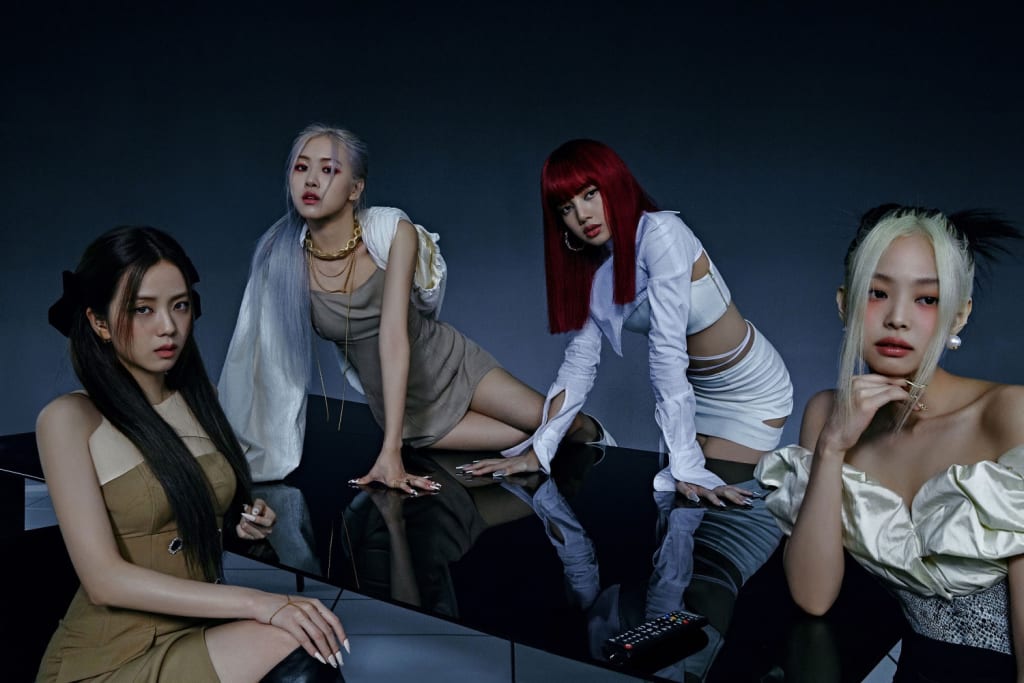
For longtime fans of South Korea's cultural juggernaut and often controversial export Kpop (AKA "Hallyu", "gayo" or simply “idol music” to the country's native residents), the summer of 2016 will likely be remembered for two key events. First, the industry's unofficial passing-of-the-celebrity-torch from the genre's elder statesmen and women to its most bright-eyed and bushy-tailed and second, the subsequent treasure trove of rookie girl groups that either began their reign at the top of the charts (Stone Music's I.O.I and JYP Entertainment's Twice) or further extended their runs (SM Entertainment's Red Velvet and Source Music's Gfriend.) And as luck would have it, early August would bestow yet another gift upon the season's unusually lavish mantle when iconic record label YG Entertainment's founder and former chief executive officer Yang Hyun-suk unveiled his latest ensemble BLACKPINK.
Comprised of rappers Lalisa Manoban and Jennie Kim, singer/actress Jisoo Kim and lead vocalist Roseanne “Rosé” Park, BLACKPINK (a name meant to allude to their versatility or ‘’ dual concept”) formally debuted with double singles “Whistle” and “Boombayah” on the evening of August 8th. Showcasing a polished but distinctly gritty sound in comparison to their more traditionally peppy peers, the members’ bravado and overtly chic styling felt both lofty and grounded all at once. The titles experienced immediate success in South Korea peaking at #1 and #7 respectively on the Gaon Chart and excitement from international enthusiasts and critics alike catapulted the feisty “Boombayah” to #1 on Billboard’s World Digital Songs Chart. Shortly after ending their promotions for those tracks that September, the foursome returned with another set of double singles “Playing With Fire” and “Stay” on November 1st, 2016.
Fast forward to the year 2020 and the house of BLACKPINK couldn’t be any grander. Following a year-long hiatus, YGE’s golden girls released their second EP “Kill This Love” on April 5th, 2019 to bonafide fan frenzy. Said frenzy went on to make Kpop history with "Kill This Love" seeing a record-breaking 18 million-plus streams in its first week on US platforms alone, its self-titled lead single "Kill This Love" charting at #41 on Billboard’s Hot 100 and its disc eventually going on to receive the exceptionally coveted platinum certification from Gaon, all whilst its accompanying video nabbed over 950 million views in the process.
Unsurprisingly, the act’s immense popularity has caught the eyes of global brands, global songstresses and even global festivals basically affirming YGE’s abrupt announcement of their plans to launch the BLACKPINK brand abroad with help from mammoth record labels Interscope and Universal Music Group following the release of mid-2018 colossus “Square Up”. Although the announcement was initially met with mixed reviews from their fanbase, trailing a well-received string of appearances on The Late Show With Stephen Colbert, Good Morning America, and Strahan & Sarah plus the reveal of their first round of US tour dates and their very own set at the Coachella Valley Music And Arts Festival in California, by the Spring of 2019, it no longer seemed like BLACKPINK’s ascension to the top of America’s celebrity food chain was a simple matter of “if” but merely a matter of “when”.
In the approximately 12 years since “Welcome To The Dollhouse” (the sophomore project by iconic Bad Boy Records’ R&B outfit Danity Kane) hit #1 on the Billboard Top 200 Albums Chart, the musical terrain in North America has changed dramatically and unfortunately said change has seemingly left little room for female troupes. Though 2011 saw the formation of Great Britain’s illustrious Little Mix and 2012 brought us the arrival of multi-platinum heroines Fifth Harmony (both coincidentally through reality TV show The X Factor), the United States has remained generally and unreasonably lukewarm but with the continued dominance of social media sites like YouTube, Tumblr, and Twitter, things might just be looking up for the ladies after all. In the 22 or so months since the declaration of their incoming international introduction, the BLACKPINK name has become one of the hottest commodities in the entertainment world. From endorsement deals with KIA, Adidas, and Samsung, being name-dropped by The Jonas Brothers, Dua Lipa, Naomi Campbell, members of *NSYNC, and partying with Pharrell Williams, the quartet is without a doubt burning bright but what could this flame mean for the future?
Is the sky truly the limit for Kpop’s current monarchs and is the American public really ready to accept the likes of Jisoo, Jennie, Lisa, and Rosé into their wallets, hearts, and homes? Could BLACKPINK be on the verge of being the first Korean pop girl group to fully crossover or better yet, could BLACKPINK be on the verge of bringing back the notion of the “girl group” altogether? It might be a little too early to call but in honor of their 4th anniversary, them dropping their latest project “How You Like That” this past June and another drop ahead on August 28th, I explored a few different reasons why the gang-busting gals of BLACKPINK may be coming to your area much, much sooner than you think.
-
The West’s failures highlight South Korea’s might:
Kpop as we know it began to take its shape during a decade that has become near-universally regarded as the “golden age” of teen idoldom: the 1990s. Spearheaded by a crop of winsome lads from SM Entertainment named High Five of Teenagers or H.O.T. in late 1996, the new youth movement and it’s festive mix of kid and general public-friendly sounds, visuals, and themes caught on like wildfire but just a mere 12 months later, a different kind of revolution would be born. On November 1st, 1997 SME officially issued “I’m Your Girl”, the first album from Kpop’s first and foremost female idol phenomenon S.E.S. The trio’s instantaneous superstardom created a craze and led to the emergence of several other competitors (namely Baby V.O.X, Chakra and Fin.K.L) of whom’s influence you can still readily see and hear today in the discographies of their hallowed millennial offspring Girls’ Generation, 2NE1, T-ara, The Wonder Girls, KARA, Girl’s Day, f(x) or Afterschool and in the catalogs of their aforementioned Generation Z descendants, too.
But how does this tie into our world of starlets? As previously stated, since the end of the 2000s, the 50 states have experienced an unprecedented drought. Since the end of the 2000s, we have been in the midst of the nation's longest stretch without a single headlining girl group. While Miami, FL’s Fifth Harmony enjoyed a prosperous albeit quick run, they sadly never quite reached the level of dominance experienced by their musical foremothers TLC, En Vogue, Destiny's Child, the Pussycat Dolls or the Spice Girls. So, why haven't the states been able to produce a globally renowned performance powerhouse in well over a decade? Simply put, we no longer know how to make them. South Korea on the other hand has only gone on to perfect the model.
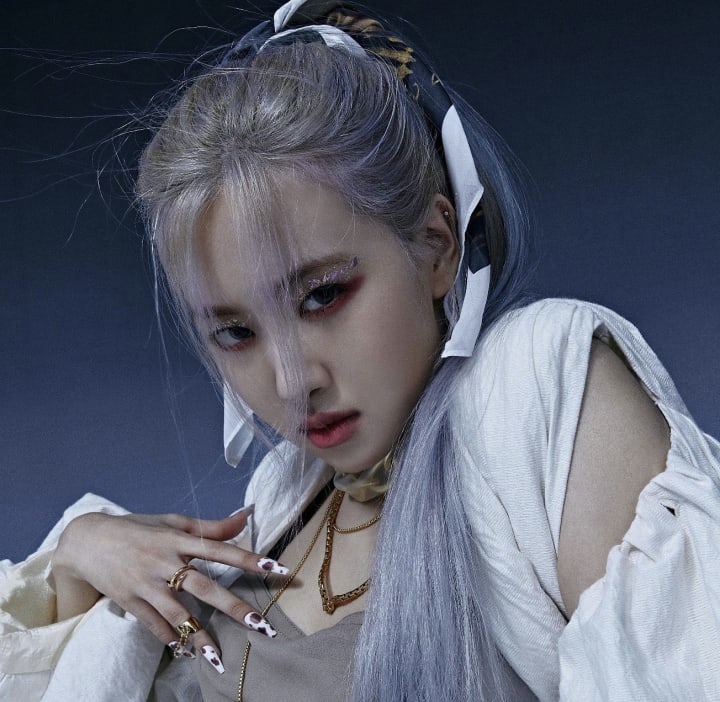
In the West, from day one, groups and bands of all sorts are often viewed by their audience (and even created by their management teams) as vehicles to introduce the solo career of its supposed standout star but in Kpop? The group itself is designed to be the standout star 9 times out of 10. Plainly put, members are frequently chosen to appeal specifically to different audiences and thus have a number of different skill sets and strengths, strengths that can broaden the band and the brand’s overall reach. Strengths or “positions” which may or may not directly involve singing or dancing but overall still allow the opportunity for each individual to flourish on his or her own. Critics and other detractors usually cite Kpop’s penchant for roles as proof of its more insidious nature and artistic limitations but let the records show that these roles often do work in their idols’ favor. BLACKPINK and Kpop girl groups in general have a unique edge over their Western peers in this day and age precisely because of their fondness for designating unique roles. Kpop girl groups work precisely because of their ability to provide a girl for virtually everyone and a girl who can do virtually anything.
Will the states’ impractical and frankly outdated approach to crafting girl groups finally see its more than timely end and be replaced with a process that’s just a bit more modern? And could the explosive popularity of BLACKPINK be the potential catalyst? There’s no exact way to know as of now but what we do know now is that our dry spell exists in the very first place because the West has refused to grasp just how to properly water its new, contemporary land.
How Relatability Killed The Radio Star:
When asked to conjure up an image of the picture-perfect pop-star, more than a few names will inevitably come to mind. Janet Jackson. Whitney Houston. Mariah Carey. Madonna. Beyoncé. Katy Perry. Rihanna. Lady Gaga and of course Britney Jean Spears. All of whom would go on to have enormously successful careers and cast invaluable templates for their eventual successors to both spring forth from and continuously follow. Ranging from mid-late ‘80s glam and bubblegum to 1990s R&B classics and soaring club bangers in the early 2010s, our Top 40 wonder women have effectively whet almost every appetite known to man but despite their unique colors and contrasts, what they all have in common is a little channel called Music Television or MTV.
Founded in the Winter of 1977, MTV sparked undeniable scandal. Dominated by absurdly influential disc jockeys and unlawful radio deals, in the form of a relatively novel idea called the “music video”, the North American music market had finally met its slightly more democratic match. Powered by bright, cutting-edge, and energetic programming, MTV quickly gathered an immensely powerful and immensely profitable backing, and the old stalwarts who had once controlled the airwaves had no choice but to loosen their grip and adapt to the new frontier. What resulted would change the game forever and what resulted was a verifiable pop culture boom. Though celebrity tabloids, merchandise, fan clubs, and even lengthy critiques on those fan clubs were already a fairly common occurrence by the beginning of the Digital Age, MTV’s emphasis on enhanced visibility led to the pop-star becoming virtually omnipresent. Whether at your local library, grocery store, fast food joint, movie theater, hair salon, or mini-mall, your favorite pop-star's influence could easily be found there and occasionally with a camera crew filming along every step of the way. Our heartthrobs and songbirds weren’t just the products of our culture but in many ways the driving forces of it, too. So, just what on earth happened?
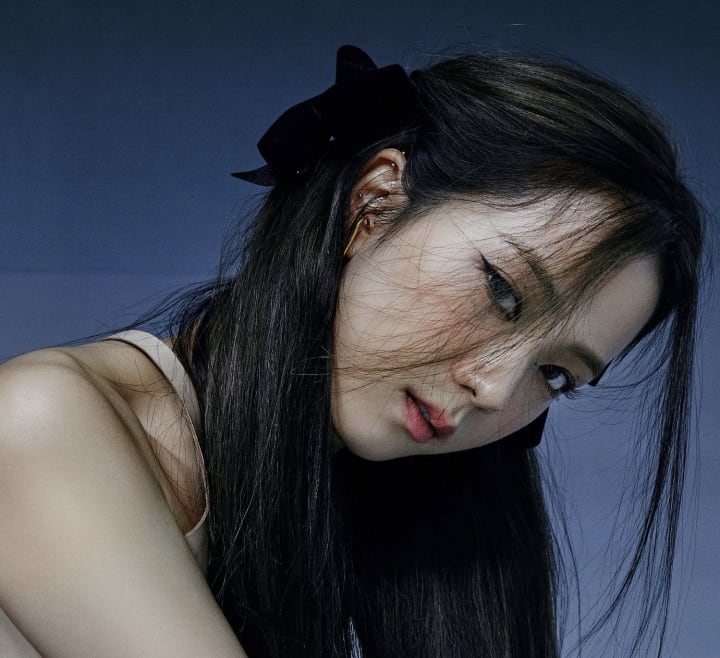
Availability, or perhaps the demand for our stars to always be available, did. Whilst platforms and shows like Total Request Live, Cribs, Diary and Making The Video (amongst a host of other programming) brought entertainers directly to us in unprecedented fashion, they were largely either scripted, structured or otherwise controlled by said entertainer’s management and ultimately aired during primetime at the discretion of MTV but in 2020, thanks to stunning breakthroughs in technology, shifting consumer expectations and a subsequent decline in the art of A&R and PR, the bulk of our entertainers can most frequently be found broadcasting their every whim, thought and action straight to millions at all hours of the day and night. In short, our favorites are closer to us than ever before and it’s making them feel.. small. Enter Kpop.
Within the last 8-10 years, the industry has made vigorous strides in its efforts to capture or re-capture younger, wider-ranging audiences (for a multitude of reasons both publicly explored and not) but some will notice that despite those strides, there still seems to be a formidable wall between idol and enthusiast, one that has yet to and will more than likely never be eliminated in totality but it’s there for good reason. Recognized for its fondness for gloss and spectacle, Kpop is customarily criticized for not always fostering an immediate sense of intimacy for or with some of its listeners but the prevailing point of Pop music has always been its gloss and spectacle, the prevailing point of Pop music was never practicality but a bent for bigness.
Contrary to popular belief, we did not put our posters on the wall because we could relate to our icons, we put them up because they were big. We proudly hung them in our bedrooms, our lockers, our dens, and garages, and wherever else we could find space not solely because of who or what they were but because of what they symbolized and before the era of instant and unrestrained access, to legions, they symbolized possibility. The possibility of glamour. The distant though definite possibility of grandeur. The possibility for shock, the possibility for awe, the possibility of luxury, and the possibility of bigness. Jaybee, administrator of YG Dreamers, the worldwide web’s preeminent database for all things BLACKPINK since December of 2011 concurs; “Since the beginning of their careers, (the members of BLACKPINK) have taken the responsibility passed down by their predecessors to promote women’s empowerment through their music and imagery so that females and young girls especially can dream big, do what they want and act as they please.” The various ins-and-outs of Kpop may seem inexplicably antiquated or downright perplexing to the untrained North American ear and eye but at least it’s still true to its name, for better or for worse.
Pursuing The Black & Pink-print:
Known for being a seasoned blend of Trot, bubblegum, R&B, Dance, Electronica, Rock, and solemn balladry, Kpop can and willingly takes on the form of just about anything but historically there has been one label that has had a habit of generating smash hit after smash hit time and time again and it’s BLACKPINK’s own YG Entertainment. Built on a foundation of charismatic swaggering, nimble songwriting, and forward fashion, YGE made its claim to fame by banking on a secret weapon that wasn’t exactly alien to its listeners but wasn’t exactly all that familiar either and that weapon was Hip-Hop. Or something like it. Established in early 1996, YGE took the brash beats of acts like Jinusean and 1TYM (featuring megawatt producer Teddy Park) and turned them into Korean chart-topping sweethearts and during a time in which rappers and rapping were seen as dangerous - even in America. Through the years, the company would add a veritable army of emcees, male and female alike, to their ranks, gaining a reputation as the defiant spunk (or antidote) to the rest of Kpop’s (presumed) prudishness and that legacy lives on unquestionably in the impassioned response to the presence of towering rap duo Jennie and Lisa.

After speaking to Jaybee, the cause of the band's acclaim across multiple shores becomes undisputedly clear. "With the likes of Destiny’s Child, Beyoncé, and Rihanna, it’s evident that the US has preferred female artists who are strong, confident, and independent." Taking bits and pieces from their previous releases and ferocious from the first note, “Kill This Love” absolutely rips through its three-minute runtime. Drawing from the girlish zeal found on “Square Up” and cranking its volume all the way up, the thundering and stout number could fit right at home on Inkigayo or Z100. Portraying the ‘’Black” in BLACKPINK, Lisa’s deliciously fiery delivery, and Jennie’s cool-as-ice approach has in just four short years changed much of Kpop’s sonic landscape and luckily for them (and us) in the United States, it’s greater than ever to be a girl.
Underfunded and misunderstood, female rap has seen its fair share of ups and downs. A series of mishaps and bad business in the early to late 2000s led to a swift commercial decline that many saw as a death knell for a movement that still hadn’t received its dues, that is, until the arrival of an outspoken mover and shaker from Southside Jamaica, Queens in the Summer of 2007. Spanning close to two decades in length, Nicki Minaj’s reign has been one of innumerable challenges, triumphs, and numerous heirs. Heirs that are now finding their own footing and in certain spades. This past Spring alone, newcomers Megan Thee Stallion (via 1501 Certified Entertainment) and Doja Cat (via RCA Records) saw viral videos, critical acclaim, and scored #1 positions on the Billboard Hot 100 chart consecutively but not without facing monumental challenges of their own. Reluctant fixtures in and outside of urban blogs, magazines, and podcasts, Megan and Doja’s simultaneous rise has been remarkably impressive but they’ve come at a high, intensely personal price. The recurrent targets of virulent discourse and excessive scrutiny, some have gone above and beyond to remind them and their devotees that Hip-Hop is still very much a (Black) man’s world but despite these obstacles, female rappers the world over are undergoing a long-overdue renaissance and subsequently carving out spaces in the music industry that some thought were fundamentally impossible. Spaces that some anticipate the members of BLACKPINK could potentially enter themselves one day. But what does potentially occupying that space even mean when much of Hip-Hop’s own originators struggle to have their landmark contributions fully recognized as such?
Markedly talented and noticeably earnest in their actions, the twosome has every tool available to help solidify themselves as equally elite idols and emcees but a handful of questions and concerns remain. What does the future hold for female rap? And what does it mean to be a female rapper right now? What does the future hold specifically for Black female rappers and what do we make of those who have created and will continue to create formidable empires by essentially emulating those Black women and their largely unthanked work?
Appearing in Billboard Magazine in February of 2019, BLACKPINK’s rap line did their best to decipher just that:
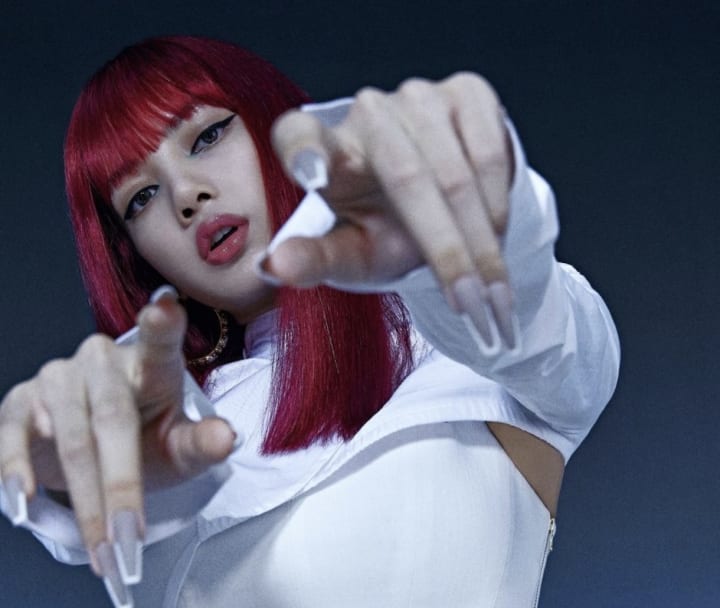
-
Not ones to be outdone, just weeks ago the girls of BLACKPINK kicked off the beginning of what’s said to be their most ambitious undertaking to date and they did so with an extraordinary bang. Pre-released from their upcoming full-length debut album (ironically titled “The Album” and currently rumored to feature guest appearances by Ariana Grande, BigBang’s G Dragon, and Selena Gomez), “How You Like That” thumps, thuds and knocks, sending the signal of the crew‘s impending domination loud and clear. An odd fit for the warmer months, the darker, icily-toned Teddy Park-penned track could’ve been a risk for the burgeoning brand but so far, after nabbing the #1 spot on iTunes in over 60+ countries and seeing multiple entries into a book by the name of Guinness, their gamble has paid off.
Where there once used to be a plethora of Pop, R&B, and Hip-Hop hybrid girl groups, they’re now a distinct rarity in the West but little by little, things are heating up again and BLACKPINK is unmistakably lighting that blaze. “Realistically, BLACKPINK has a long way to go and still has much to prove but we can’t deny their great potential to make it big outside Korea. Given the right timing, artistic freedom, and proper support and guidance, there’s no way they can’t break the Western market’’ Jaybee assures. Splashed across clothing, trading cards, backpacks, wallets, keychains, face masks, collectible plushies, microphones, dolls and in talks with Target and Amazon to expand even further into our shopping aisles, funnily enough.. you would think the dawn of the ‘girl group’ had never left.
About the Creator
Kimberley Scribe
Foolhardy writer from the West Coast, now wandering somewhere around the Big Apple. Let’s search together.


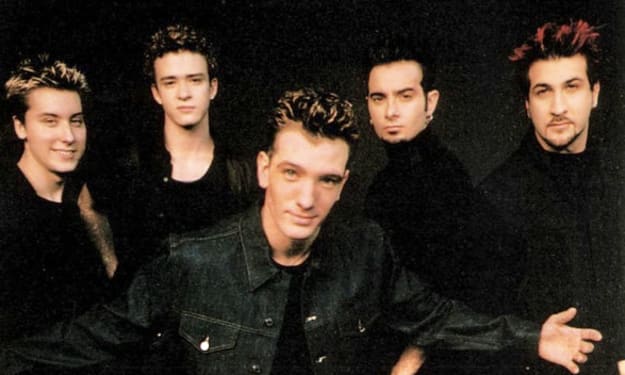

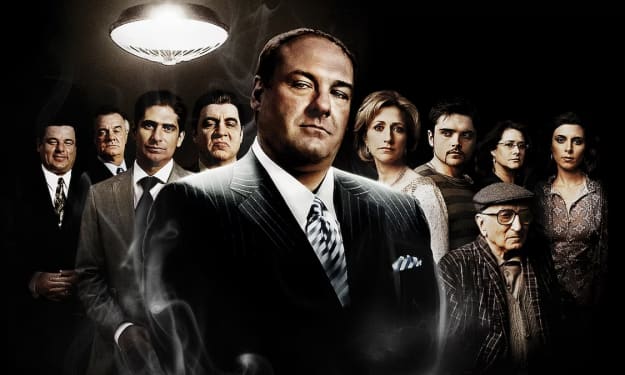

Comments
There are no comments for this story
Be the first to respond and start the conversation.